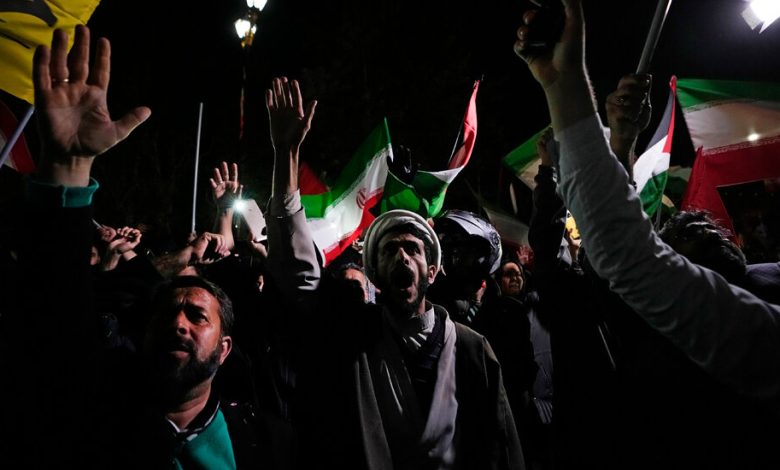Biden’s Small Win — and Bigger Failure — in the Middle East

President Biden’s behind-the-scenes crisis management appears to have helped stop a wider war from igniting in the Middle East — for now. But that tactical win for the administration is actually part of its much larger strategic failure in the region.
Over the past two weeks, Mr. Biden has scrambled to ensure that the unprecedented open exchange of fire between Israel and Iran did not spiral into a full-blown conflict. After Israel struck the Iranian Consulate in Syria on April 1, killing senior Iranian military officials, Mr. Biden publicly urged Iran not to strike back while privately negotiating a choreography that ended in Tehran’s well-telegraphed barrage of missiles and drones being shot down before they could inflict major damage in Israel. Mr. Biden then tried to persuade Israel not to retaliate. Prime Minister Benjamin Netanyahu didn’t heed the order, but Israel’s response was so muted that Tehran effectively ignored it. Mr. Netanyahu’s minister of national security called it “lame.”
Mr. Biden deserves credit for orchestrating this crucial de-escalation. Iran launched an attack that failed, as it was designed to; Israel’s response was limited enough that Iran could pretend it hadn’t been attacked at all. But while the president’s maneuvering helped avoid an immediate disaster, it is his own policies that have set the Middle East on its current dangerous trajectory. Israel and Iran have been embroiled in a shadow war for more than a decade, but they had never been this close to all-out war.
Since Hamas’s attacks on Israel on Oct. 7, Mr. Biden has refused to leverage America’s considerable influence over Israel to rein in the behavior of Mr. Netanyahu’s government, to secure a cease-fire or to deter Israel from committing what may amount to war crimes or acting against American interests. Instead, he has followed Mr. Netanyahu’s lead, even as Israel has put vengeance over interest.
Mr. Biden has armed Israel in the middle of what the International Court of Justice has said could plausibly be considered genocide, including twice circumventing congressional review and oversight of arms shipments. His State Department has made a mockery of his claim of centering America’s foreign policy on the protection of human rights by certifying that Israel is not committing war crimes in Gaza. And most important, he has on three occasions vetoed U.N. Security Council resolutions demanding a cease-fire. He allowed one such resolution to pass last month, only to immediately undermine it by claiming it was nonbinding.
These policies have not only prolonged the war in Gaza, contributing to the slaughter of civilians and isolating the United States internationally. They have also fueled the risk of a regional war into which the United States could easily be dragged. The war in Gaza led to the breaking of the unwritten cease-fire between U.S. troops in the Middle East and Iraqi and Syrian militias aligned with Iran, which in turn led to a significant rise in attacks on American forces and the killing of three American service members in January. Mr. Biden responded by using force against these militias and the Houthis in Yemen, bringing the United States ever closer to open conflict.
